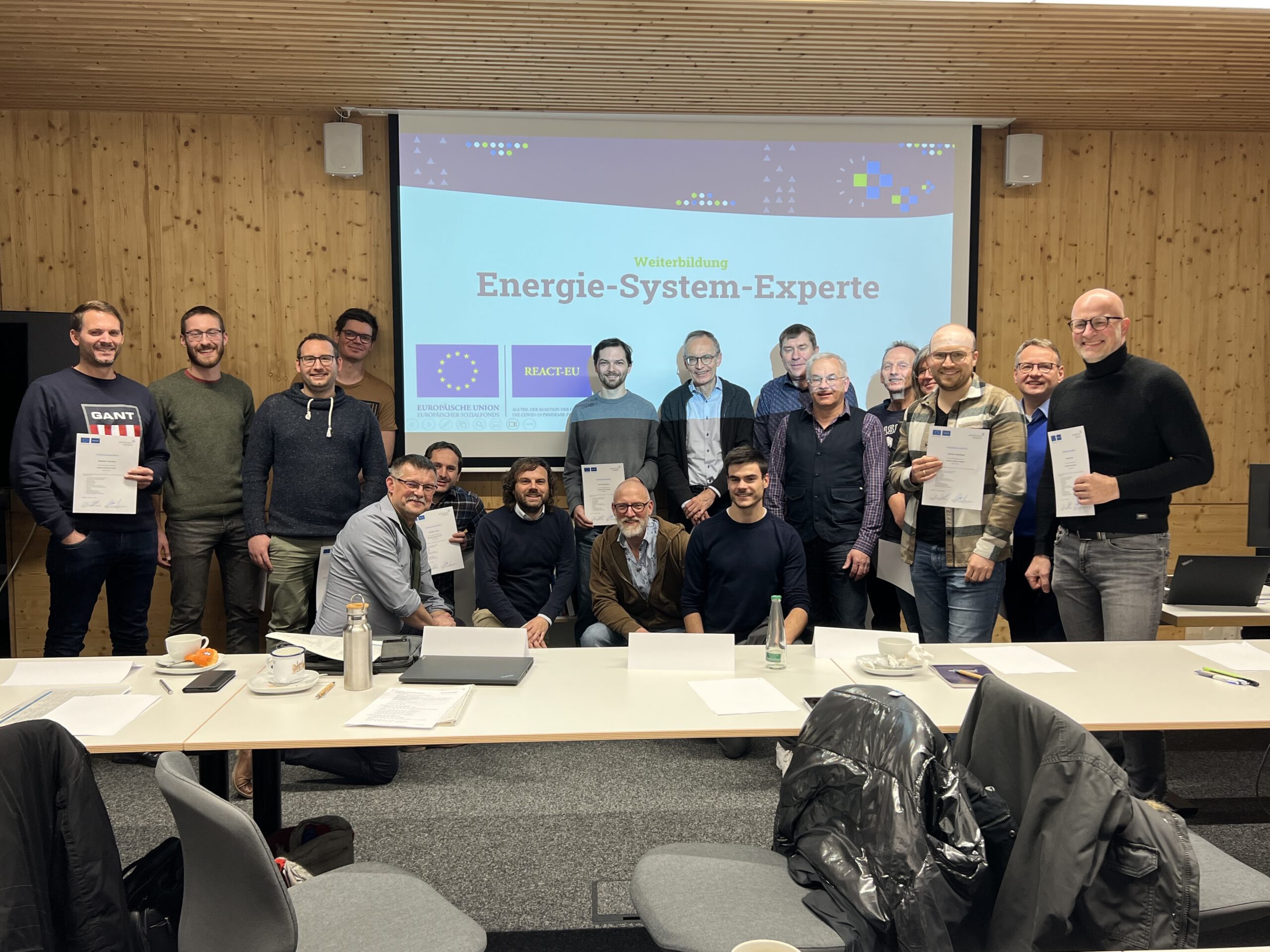Further training to become an energy system expert
The future of the heating transition in Germany: focus on heat planning
he first advanced training course for energy system experts at Ansbach University’s Feuchtwangen Energy Campus was a complete success. It deals with the changing requirements for the electricity and heat supply of buildings, with a focus on efficiency, CO2 neutrality and smart technologies such as photovoltaics, heat pumps and battery storage.
Participants acquire comprehensive knowledge of building and energy technology, programming, control and artificial intelligence. The training enables them to understand, plan and optimize various energy systems and thus contributes to promoting the energy transition.
A total of 15 participants immersed themselves in the depths of the energy world for eight hours each over five days from November 8 to 23.
Contents of the training
At the beginning, the participants focused on the changing requirements for the electricity and heat supply of buildings as well as the essential basics of photovoltaics and battery storage.
With his practical knowledge, Prof. Dr.-Ing. Johannes Jungwirth provided a successful introduction to the topics of energy markets, tariffs, sector coupling and electromobility. The broad spectrum of topics enabled a lot of exchange between all course participants and a wide range of insights into the various facets of the energy industry.
Halfway through the course, Prof. Dr.-Ing. Haresh Vaidya, an expert on heat pumps, deepened the knowledge of heating and cooling systems and the associated transmission systems. The much-discussed topic of hydrogen was also covered.
Energy consultant Dipl.-Ing. Christoph Matschi, M.Sc. spoke on the subject of buildings and refurbishment and shared his extensive wealth of experience. Everyone was offered an exciting journey through the technologies that will shape our future and the energy world.
Communication, interfaces, intelligent systems, building automation and energy management systems then came into focus. Thomas Haupt, M.Sc. gave those interested an insight into the networked and intelligent energy world and demonstrated the possibilities offered by the large interplay of many individual components.
The training concluded with an in-depth reflection on the “lessons learned”, an interactive question-and-answer session and an inspiring joint discussion. The participants left the training not only with in-depth knowledge, but also with a network of valuable experiences and contacts.

The structured structure of the training enabled the participants to take an in-depth look at various aspects of the energy industry, from renewable energies to intelligent systems and strategic communication. Not only did all participants gain new knowledge from these few days, but also inspiration and new perspectives on topics.
Supported by ESF REACT-EU.
